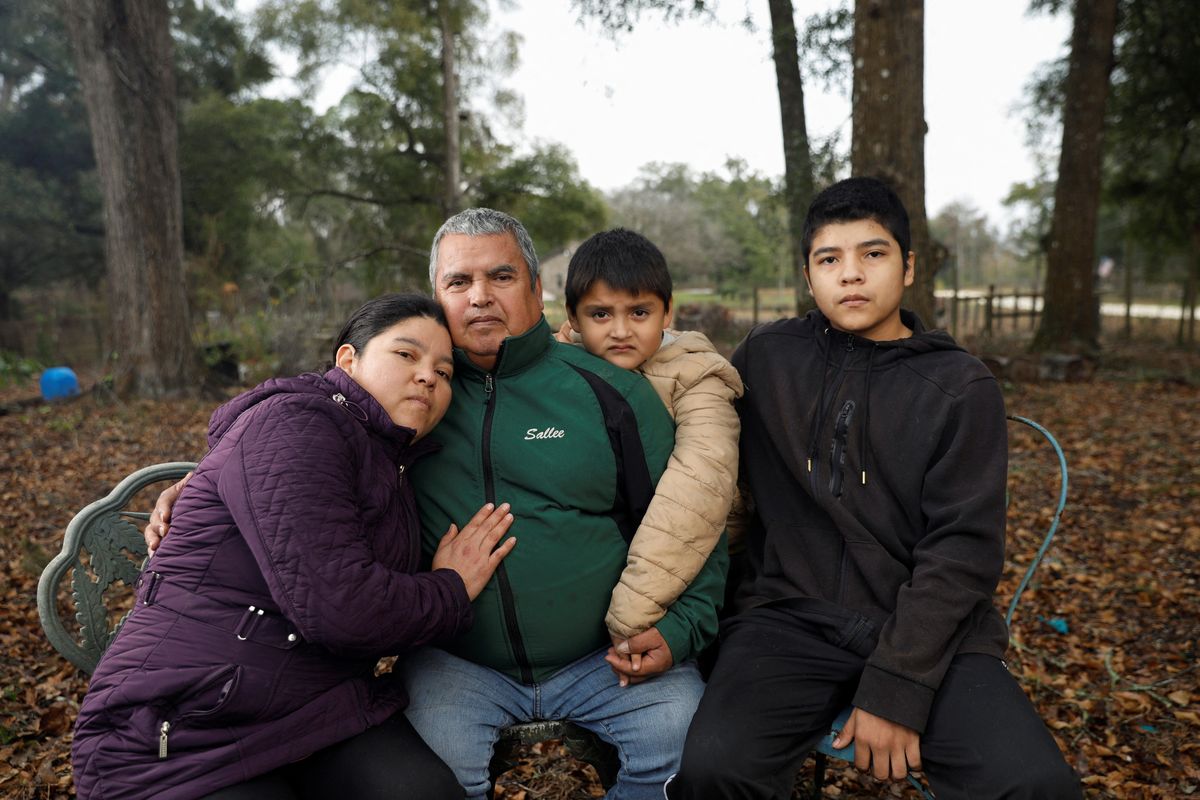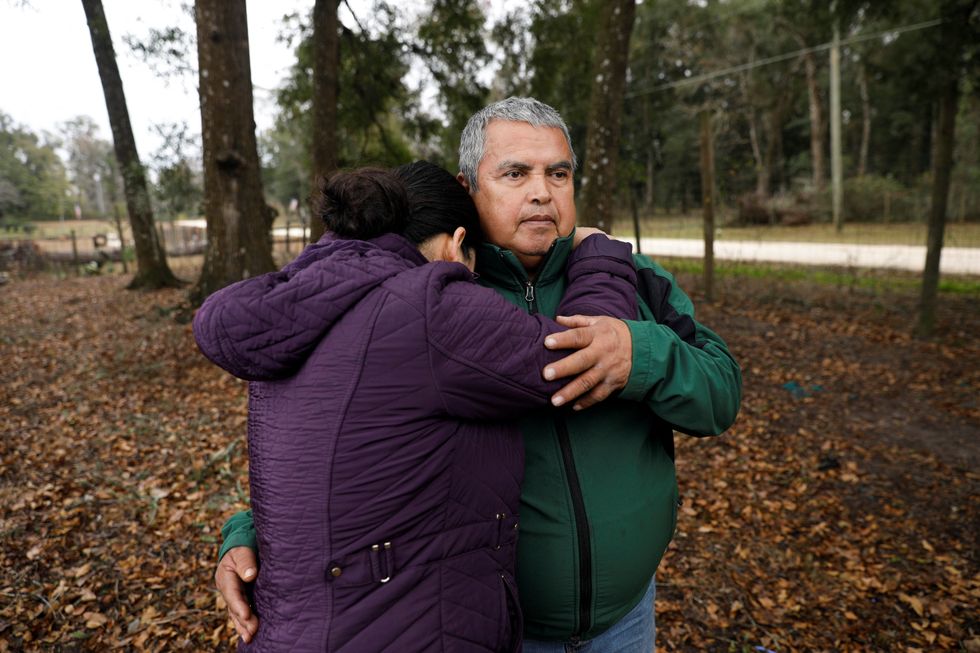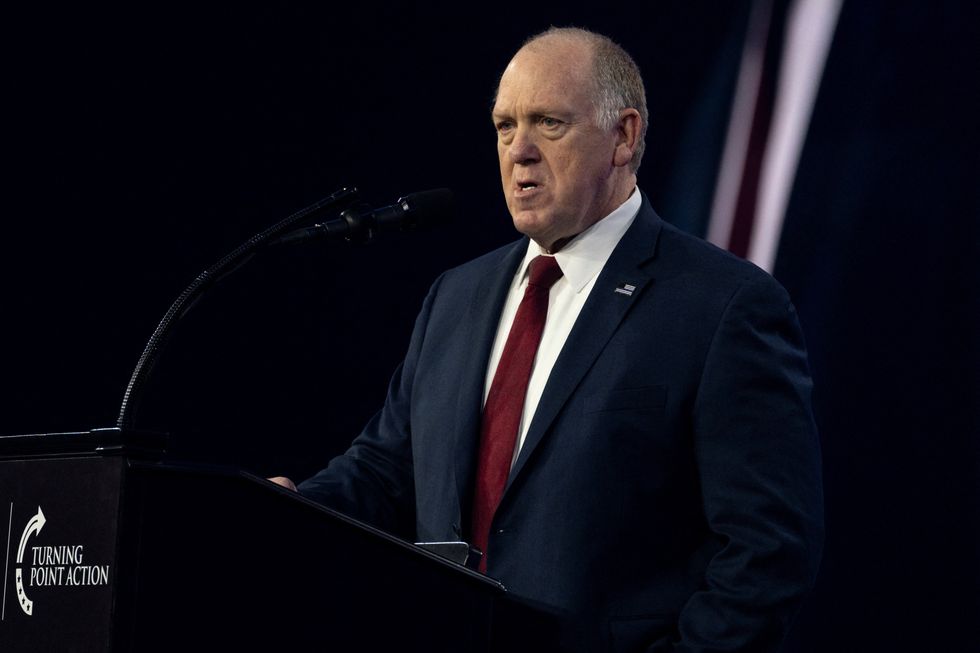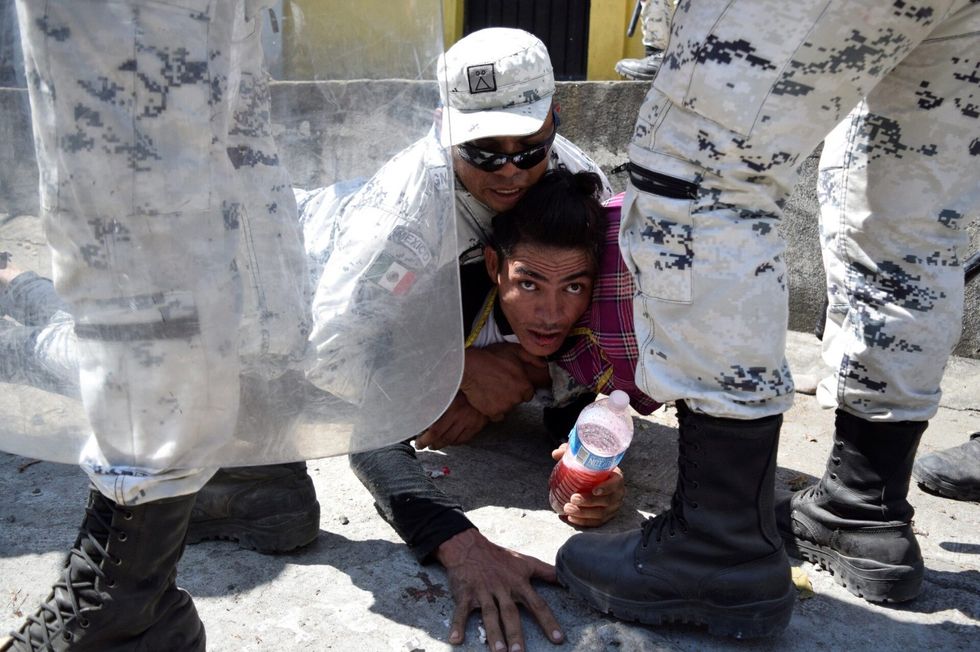The migrants on the frontline of Trump’s mass deportation plan
One-third of 1.4M deportation targets live in Florida and Texas
Reuters
News Agency Partner
Reuters is a leading source of news and information, delivering fact-based reporting and expert analysis on international events and trends.

Blanca Figueroa from Guatemala, who has a deportation order dating back to when she first entered the country illegally and asked for asylum in 2016, with her family, in Ocala, Florida, U.S. January 13, 2025.
Reuters
Trump's incoming border czar Tom Homan emphasizes executing existing deportation orders
Biden's policy focused on serious criminals while Trump plans broader enforcement
Mixed-status families report putting major life decisions on hold due to deportation fears
Blanca Figueroa and Severiano Martinez have known from the start of their eight-year marriage that she was at risk of deportation because she entered the United States illegally.
Now - with President-elect Donald Trump expected to issue a flurry of executive orders aimed at speeding the deportation process on the day he takes office on Jan. 20 - that risk has become an overwhelming source of anxiety and discussion in their central Florida home.
Figueroa, who is from Guatemala, and Martinez, who is a U.S. citizen, live with their seven-year-old son who was born in the U.S., and a teenage son from an earlier relationship who has a green card. Figueroa says she is the family's main breadwinner and Martinez's caregiver after he was injured at his job on a horse ranch.

"He worries a lot that if they deport me that he would not be able to manage the house and the boys," she told Reuters.
About a third of the 1.4 million people expected to be prime targets for deportation - those like Figueroa with "final orders of removal" - live in the Florida and Texas enforcement areas, according to U.S. Immigration and Customs Enforcement data obtained by Reuters.
Fear of being picked up
Reuters spoke with half a dozen immigrants living in Florida and Texas with removal orders as well as immigration advocates and church leaders, who described rising anxiety and a scramble to meet with lawyers and make contingency plans for children and other dependents in case they are deported. They described their fear of being picked up by police indiscriminately or for driving without a license.
Budensiek, a Republican, said the sheriff's office has "had a really rough time" getting ICE officers to pick up immigration violators from their jails during President Joe Biden's presidency.
"I believe that the Trump administration will be pretty aggressive with grabbing them up," he said.
Figueroa, 36, crossed the U.S.-Mexico border illegally in 2016 and was ordered deported after she missed an immigration court hearing that November. She met Martinez, 64, later that year, when they worked on the same ranch. "He was, and still is, my angel here," she said.
Despite marrying a U.S. citizen, Figueroa has been unable to legalize her status. She missed the window to appeal her deportation order, and a judge denied her motion to reopen the case, court records show.
None of the options Figueroa and Martinez have discussed in case of her deportation - him staying in Florida with the kids; moving as a family to Mexico - seem remotely workable to them as they depend on Figueroa's income and on Martinez's health insurance.
Hardline stance
Tom Homan, who will be border czar in Donald Trump's incoming administration, has said immigrants with final deportation orders have already had a chance to argue their case in front of a judge.
"At the end of that due process, when they get ordered removed, those orders have to be executed or what the hell are we doing?" he told Reuters in October. "If those final orders don't mean anything, then shut down immigration court."

Trump's plan to prioritize deportations of people with final orders of removal is a dramatic shift from Biden's focus on serious criminals and national security threats.
The Biden administration directed ICE officers to consider certain factors before making an arrest, including whether the person was a long-term resident or primary caregiver.
Trump's new guidance would prioritize criminals but allow anyone without legal status to be picked up, giving more discretion to ICE officers, Reuters reported in November.
Other migrants - from countries like Cuba and Venezuela that have frosty relations with the U.S. and accept few deportees - were low priorities for deportation under Biden.

Alain, a Cuban who crossed the U.S.-Mexico border illegally in 2021, now lives in Houston with his wife Erika, a Honduran who also lacks legal status, and their four children. Their two youngest are U.S. citizens.
He has been working with American Gateways to contest his deportation order and recently purchased a big-rig truck and trailer to start his own trucking business.
"I had plans to buy a house next year, but I'm afraid," he said. "It's a risk to buy a house because if I'm deported, I'll lose everything."










Comments
See what people are discussing